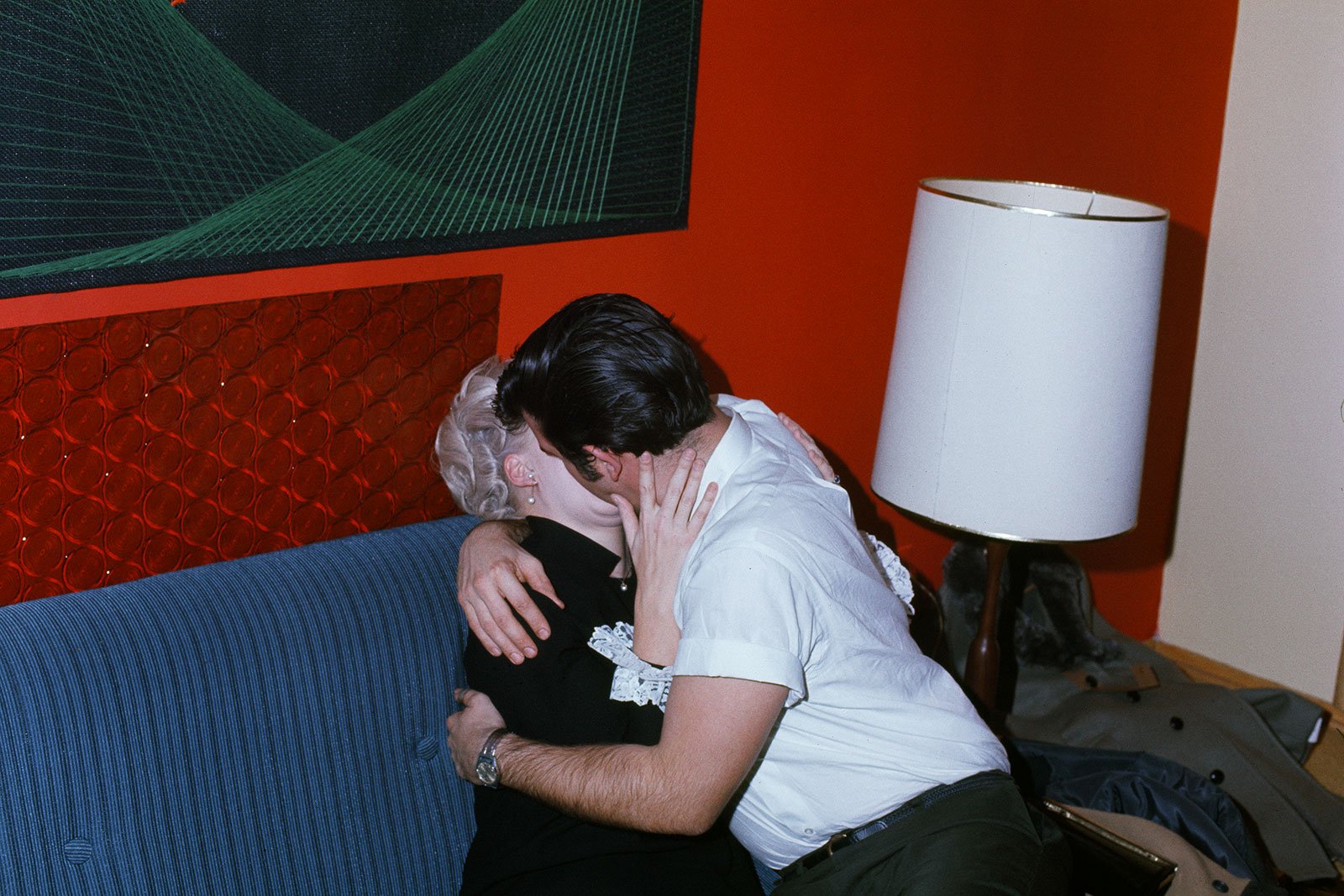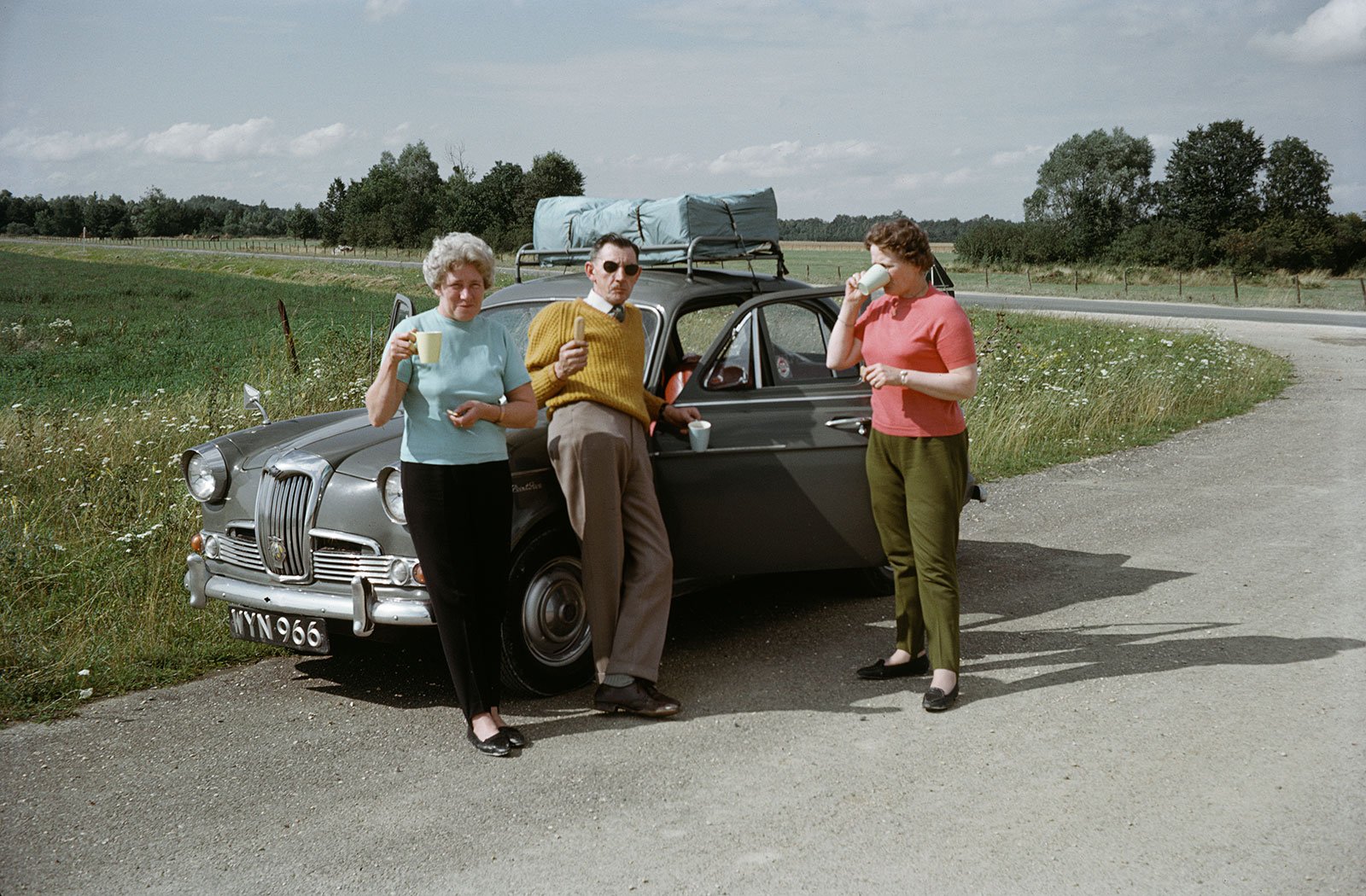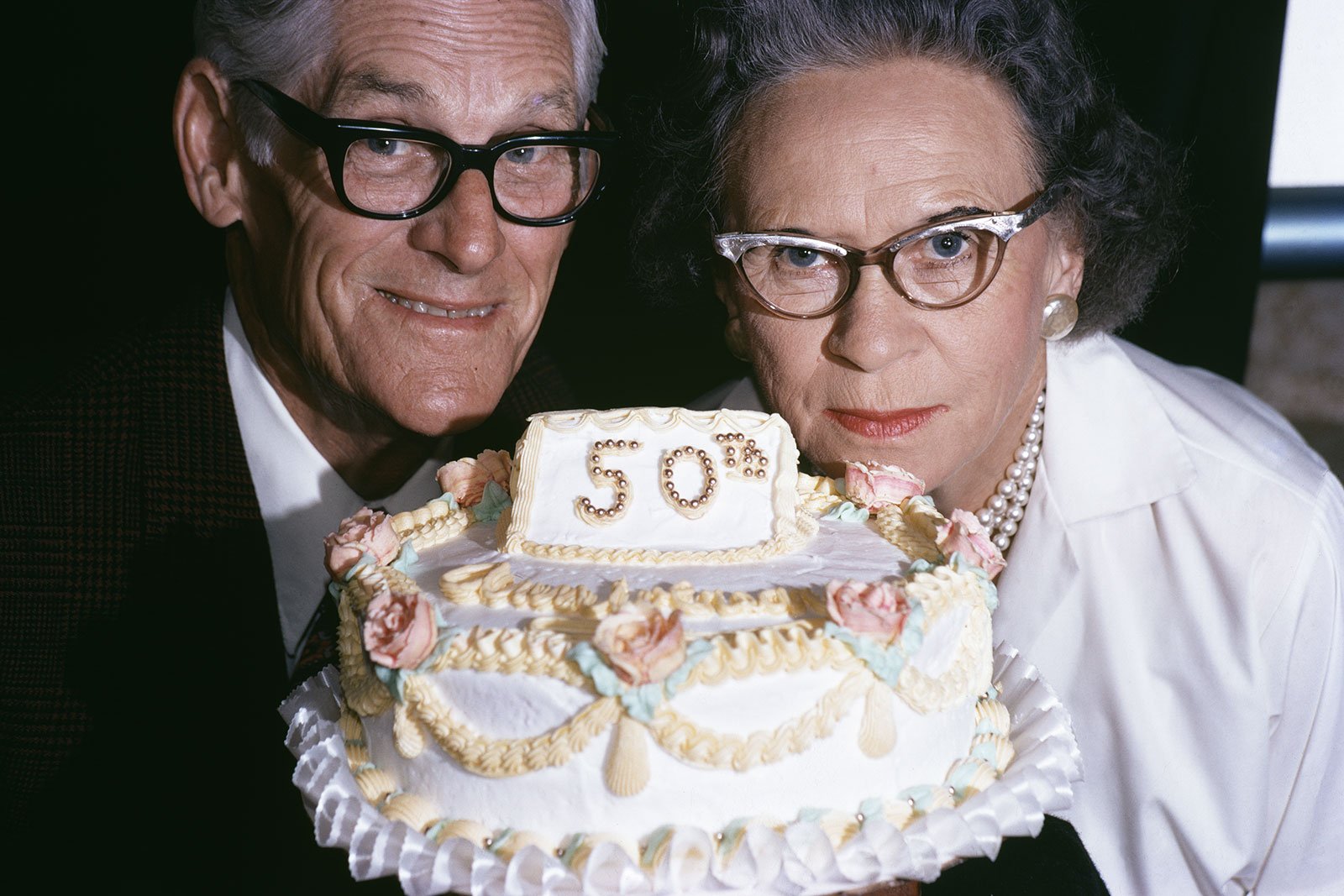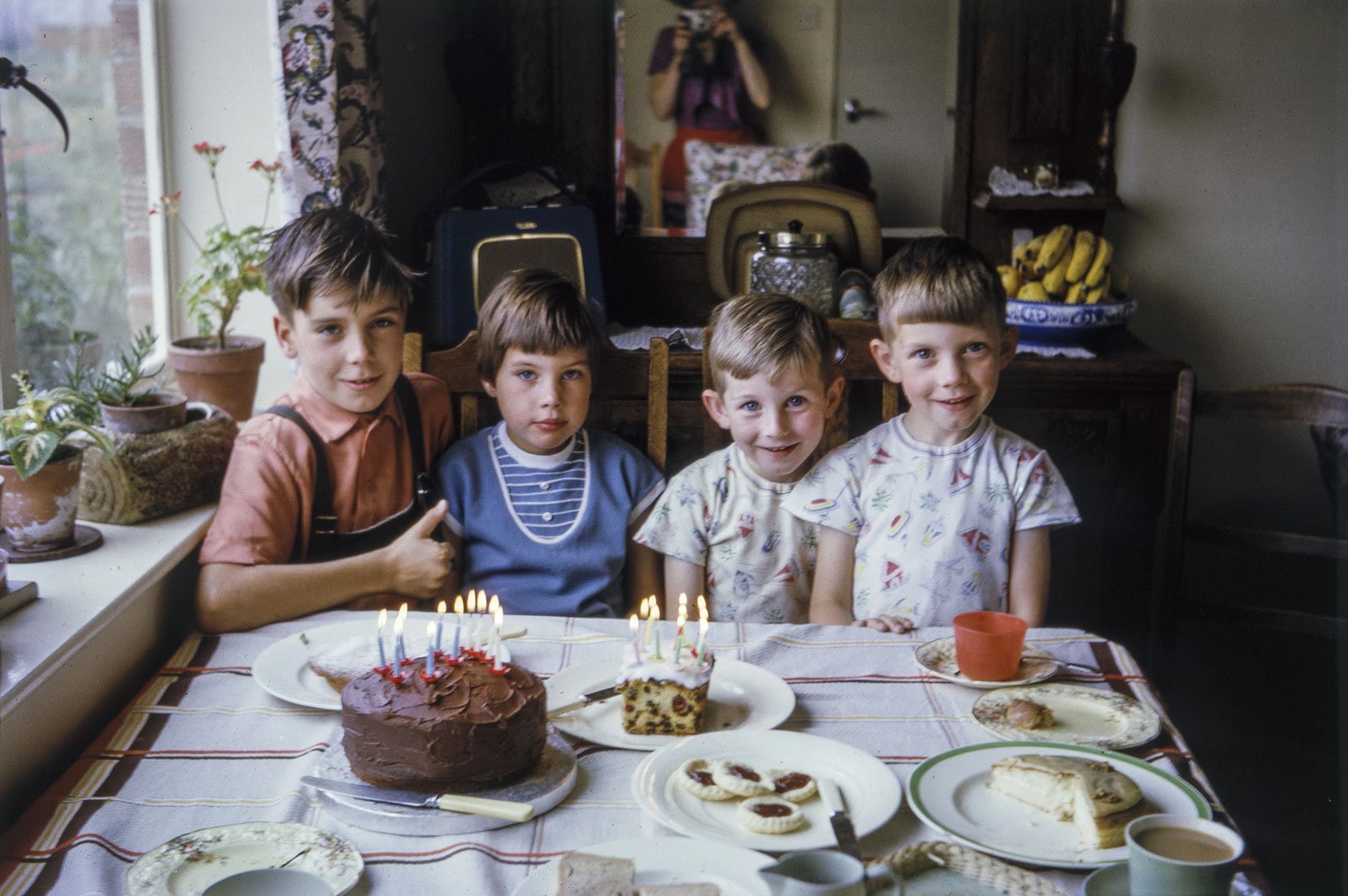nameless memories: an interview with Lee shulman
Lee Shulman is a British film director with a passion for collective history. As founder of The Anonymous Photo Project, Lee shares his story and his motivations behind collecting nameless Kodachrome slides.
Midcentury Memories Cover. Courtesy of The Anonymous Photo Project ©
A large, bulky book with the picture of a woman at the beach sat comfortably on my coffee table. My dad had just bought it to decorate the living room. When I opened it, I felt like it unearthed a door to a past I hadn’t be a part of, but was now witnessing: old men sleeping in chairs with party hats, lovers and their honeymoon pictures, goofy children playing in their front porches, and ladies sunbathing at the beach. ‘The Anonymous Project- Midcentury Memories’ it read. ‘Curated by Lee Shulman’ it reiterated. I was intrigued. Inspired.
Months passed. Project Synergy was born. Greatly influenced by the curation of collective experience, we decided to contact Lee for an interview. He agreed, and we met through Zoom.
We were welcomed by a smiling face, cool sunglasses, and a wooden backdrop that gave way to a spectacular view of a modern French house. We began with the questions.
Isabella: What was the inspiration behind the Anonymous Photo Project?
Lee: I'm old enough to remember slideshows - to remember my parents showing me slides in the evenings and being really embarrassed by horrible family pictures. I remembered that we used to buy our friends and neighbors over. Slideshows were the Instagram before Instagram. It was a way of bringing people together, like the first home cinema had done.
So, fast-forward: I'm now a filmmaker and director. When I went to film school, we started with slides. We were on the cusp of the analog-digital transition. I remember shooting slides and being amazed by their quality. Years passed, and one day, my dad sent me a box of slides, and said: “we’ll get rid of them.” But I took them under my wing, and appreciated their beauty. I began to wonder: if my home stored such beautiful memories, how many homes had these too? Immediately, I went on eBay and typed ‘vintage slides.’ I didn’t know why I did it, but the results amazed me: so many people sold vintage slides, at a very cheap price - people didn’t want them. So I bought a box, forgot about it. I was working in my office and this box arrived. And I just opened it, put my hand and I pulled out one. It was an unbelievable family picture. As I went through them, it felt like an Indiana Jones moment: digging for memories. And I realized that nothing like this had been printed before: who would care about the forgotten memories of an anonymous self? As it turns out, I did care. And other people cared. And now The Anonymous Project has become what it is now.
There's so many memories that are still out there, waiting to come back to life. The images I’ve collected are just a tiny part of history, but I feel very, very blessed to see all these amazing memories. Each time I get a new box, at the end of the week, it’s like Christmas in my office.
Courtesy of The Anonymous Photo Project ©
Alessia: I’m curious - has anybody reached out and said “Hey! That’s my aunt!” or something similar?
Lee: You know, this is the big thing that really I thought when I started this was all the images are a lot older than we think they are. Most of them come from the late 40s to 50s and 60s. It’s a crazy fact that they’re so old but have such good color quality. When I started this, I had that same thought - that someone would call to say “that’s me!”, but that didn’t happen.
I think that's part of the title of the project. I think this idea of being anonymous is really interesting. It's kind of like, I think we all end up being anonymous at some point. Unfortunately, in the future, as sad as that sounds, it's also quite comforting in some respects, and that we end, I kind of like that idea that these people are anonymous, it's not who they are, or where they were or the date, but it's what they represent is super important.
That's what I'm trying to get into this project, is not that there's the historical side to it, or there's the static side, that's not what interests me. It's really the emotional value of what we find.
I've had one story that said, so. Which is cute, which is actually a story which is around one of these very famous images of the three bodybuilders like this. Two African American guys and a white guy in the middle. And a girl sent me an email saying when I was young, I think the guy in the middle was my boyfriend. He actually wrote me an email. It was one on Venice Beach. And this young guy had met the two African Americans who were very famous, quite well-known bodybuilders. And he really wanted to be a bodybuilder. So he met them and took this photo. And he wrote me this beautiful letter saying how that moment really inspired him and he dedicated his life to working in sports. So it was really lovely. But that's the only one and I kind of hope that there's more, because it's so lovely when people do but that's also part I think of the story. That's, it's, it's the sadness of it. And then it's also the beauty of the whole idea.
Isabella: As you tell us- the past forms us in a way we cannot comprehend. What do you think this project has taught you about your origins, or the origins of the people you have seen in your photographs?
Lee: Probably the best question anyone's ever asked me - you get a gold star for that one, because this is a very personal project. My choices have always been influenced by my background, and my background was very difficult.
I’m Jewish, and I lost all my family. Throughout my life, I have felt very dispossessed, and I’ve always yearned for a big family. Through the Anonymous Project, I have come to believe that we’re all a ginormous family, staring with endearment at old family pictures. I feel like I know all these people in the images - I feel like I know the whole family, and how they’re feeling. Sometimes, I get all of these emotions - I laugh, I cry at these great moments.
What I'm really interested in is how other people appropriate the images too. I'm amazed by what some people find too intimate, or too primal. This is a very intimate part of a topic that we don't often see, you know. So that's something that I feel very strongly about as well. Emotion.
Alessia: The origins of photography itself are also exposed through this project, because each photograph is truly experimental, natural. Building on what you said, do you feel that these memories paint a more accurate version of history?
Lee: I think the truth is important. When you take away those elements of political and social size, and you get to the emotional core of an image, those emotions and those experiences are universal. They belong to all of us. It doesn't matter where you come from,we can all relate to the image of a child jumping in a puddle, because we all do that. And that belongs to everyone. It’s not about class, race or gender - it’s about everyone. Collective memory is, in itself, collective history in its truest, most essential form.
Alessia: Has there been anybody that gave you a comment that shocked you?
Lee: I had a big exhibition called ‘The House’. It was very beautiful, For me, it was a life-changing experience. We redid a whole house from the 1950s, and included all the images and projections to simulate a real experience. There were several walkthroughs.
Suddenly, one woman came up to me and said: “this makes me so sad. It can’t believe how real it is, it gives me the blues.” The conversation we had after was amazing - she felt like the house reminded her of growing up, and she hadn’t had a happy childhood.
I then realized that many people lead a difficult life, and memories are more sour than sweet for them. Everybody's memories are different. So it's not about just provoking the good memories. It's also about provoking things that are melancholic, and sometimes sad. I never realized this until I heard it, because I didn’t and I don’t hear it often. But it was nice. It was something that stayed with me.
Alessia: You mentioned you have kids. Have you ever thought that the pictures you take of them will be someone else’s anonymous project?
Lee: You know, I come back to that idea of being anonymous. I think it's really interesting.This will sound like a terrible analogy, - forgive me - but when you go to a graveyard, you notice that the new ones are beautiful and clean. And the older they get, the more abandoned they are. We all, at a certain point, reach oblivion. That’s why projects like this gives people a second life.
The Anonymous Photo Project ©
The Anonymous Photo Project ©
I feel very optimistic about these images, because they have a new origin. The images speak to me now, and they will speak to someone else in an entirely different way 50 years from now. A question for you, guys - what are your favorite pictures from the project?
Isabella: I love the one about the man and the woman with a lamp head in their heads, or the one with the old man and the birthday hat falling asleep on the couch. I love that picture. It reminds me of my grandparents, tired at the end of the day, falling asleep on random surfaces.
Alessia: I truly love each and every one of them. But I’ll have to settle for the dogs collection, because I’m such a dog person.
Lee:They're amazing. And they really have been forcing me to make it over because they sell well. Animals are fantastic and beautiful.
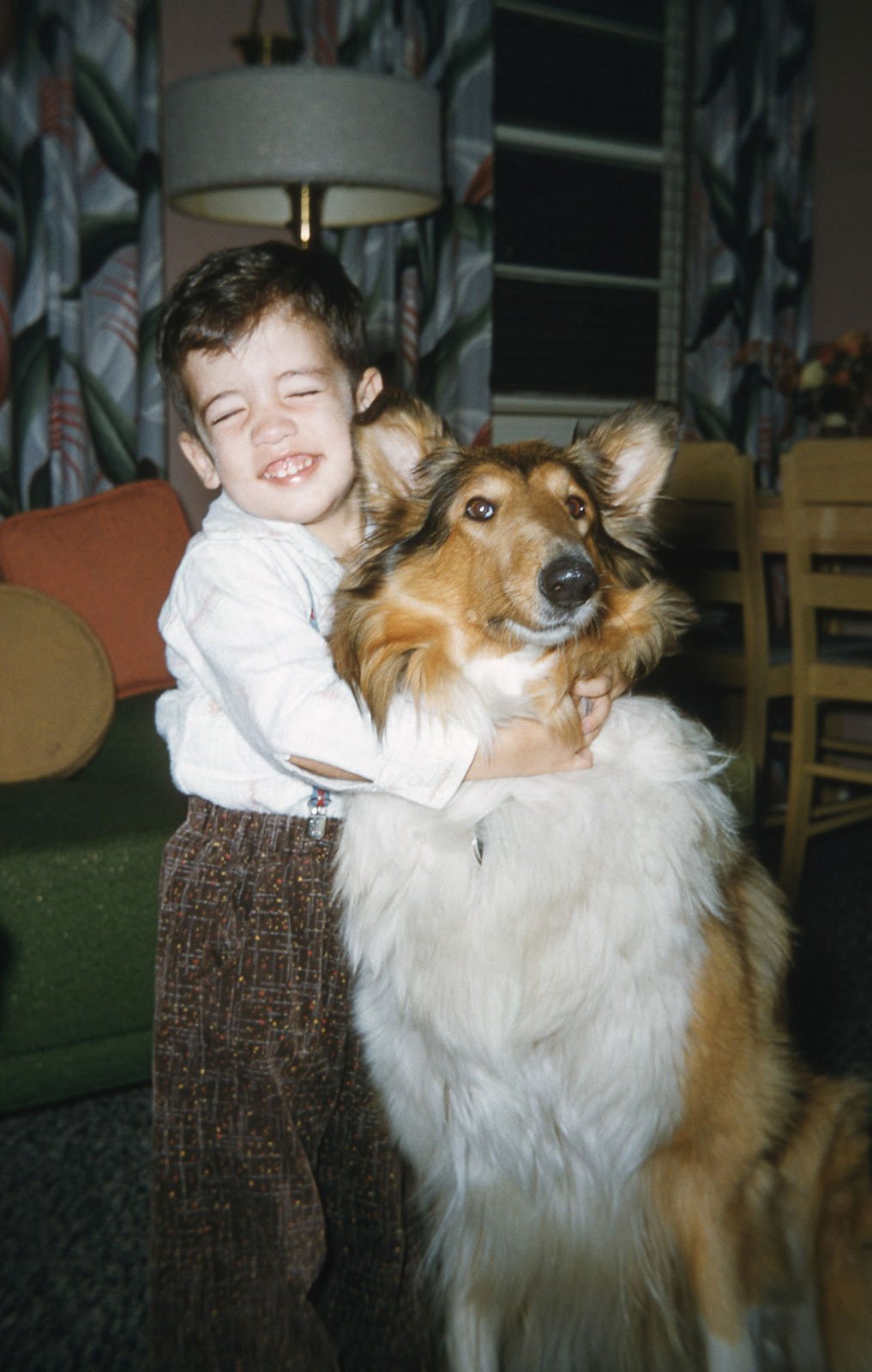
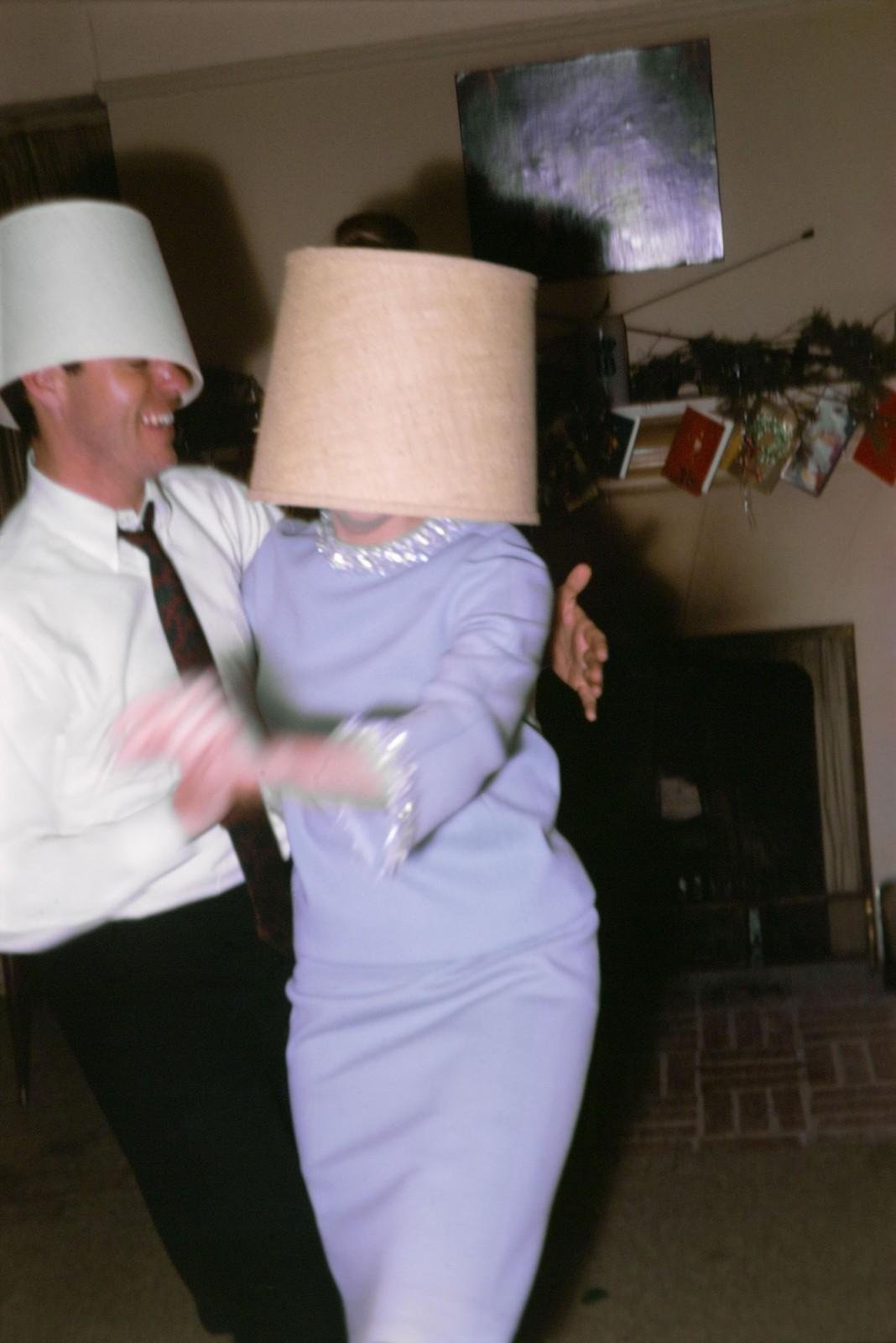
Alessia: One final question before we leave. What does the word “origin” mean to you?
Lee: It's really weird for me because I think it means something different to every single person. There's no universal meaning of origin. Everyone feels things differently.
My origin is part of the human race. This is very much a humanist idea. Maybe it’s utopian, but that idea that we all are one big family is the biggest thing for me. And that's what it is. And I think that's what origin means to me. (...) The human family is the family for me. And I think if we can really push that idea forward, we'll be in a better place. And unfortunately, the more I think about being all-inclusive, the world seems to be less inclusive. So I feel it's a tough thing. I think you know that too.
After an hour-long conversation, we ended the interview.
Alessia: Thank you so much, Lee. It was truly an honor. And just remember that there's people like you out there, too, you know, who love the idea of one big family.
Lee: It has been great to speak to you guys.
Isabella: Thank you truly, Lee. I feel really close to you, even though we just met.
Lee: You're part of the anonymous family now.
(End)
The Anonymous Photo Project ©
This interview was first published in July 2021, in ORIGINS - Issue I.




